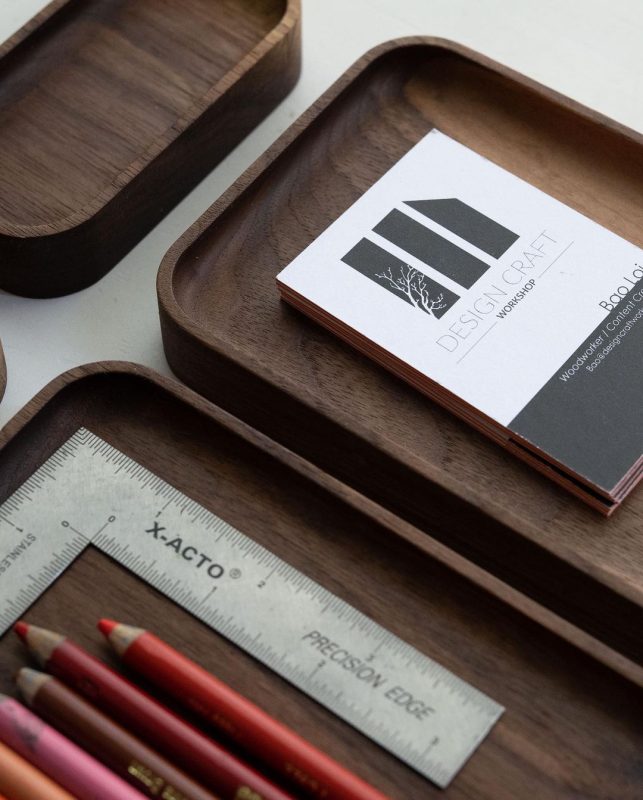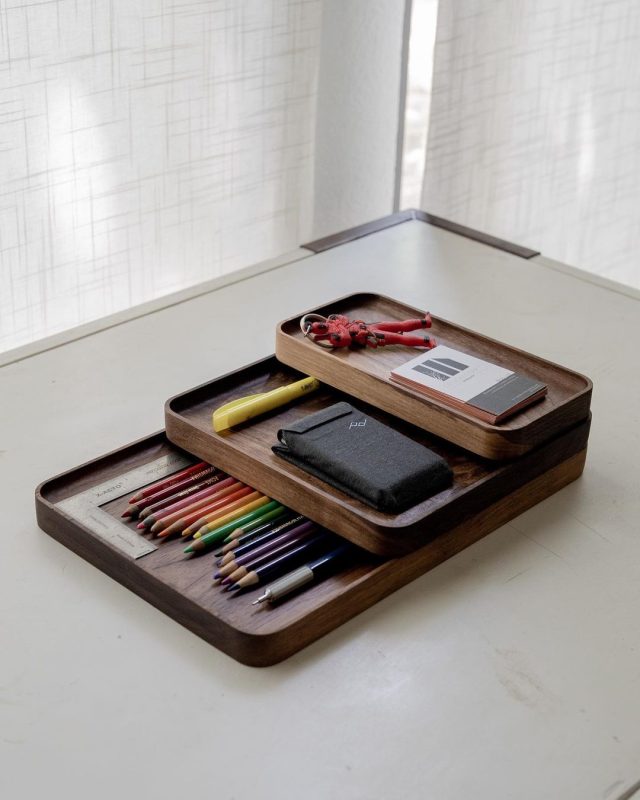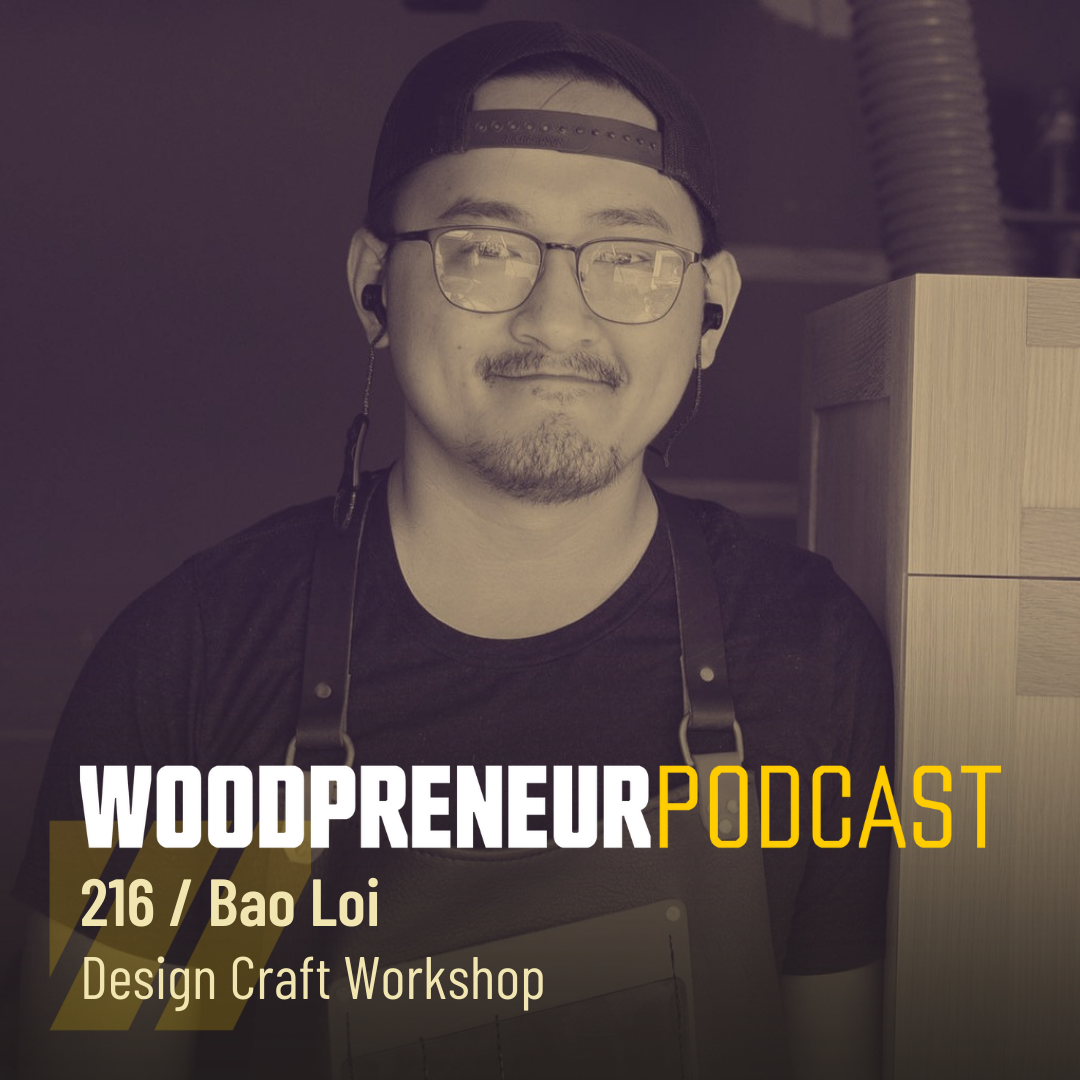Bao Loi: DesignCraft Workshop
“That’s a good point, because social media can be a good tool for you or it could just be a life draining mess. If you’re always thinking about the views, subscriber counts, if that’s what you’re in this for, you’ll probably get burnt out real quick.”
- Bao Loi
Welcome to a brand new episode of the Woodpreneur Podcast! Today, your host Steve Larosiliere sits down with Bao Loi from DesignCraft Workshop. Bao started as an architect, went to architecture school, got his license and everything. But not long after graduating, he found himself missing working with his hands, so Bao found that he needed to make a change.
“Being able to go out there on a daily basis, working on your models, working on building stuff. I definitely missed that. So after school, I stayed in town to save a little money, and I was able to work on our projects and build stuff. When I entered the workforce, there was a huge disconnect between what architects do and what they teach you in college.
Many new graduates might have that shock of going through college and into the workforce; it’s totally different. That affected me a lot. So I purchased my first table saw to sell stuff because, in college, that’s what we did. That started my journey on woodworking part-time, just doing cutting boards starting out. From there, it went towards more commissioned work, furniture builds, built-ins, etc.”
- Bao Loi

From Table Saw to Full-Time
Currently, Bao Loi still maintains his architecture license but doesn’t practice architecture anymore. Since last October, he has been woodworking full-time, and he acknowledges that the pandemic was the most significant factor in that change.
“I was working by myself as an architect doing hotel projects. As we all know, hospitality took a really big dive during that time. So new hotels weren’t being built, restaurants weren’t being opened, and nobody invested in that sector at that time.
I pretty much lost all of my projects, and they were either on hold or were canceled. So I took that opportunity to ramp up the woodworking side of things. People were still renovating their homes, and they needed office renovations, desks, and tabletops. There was a lot of work being done on that side during that time.”
- Bao Loi
Like many other woodworkers, Bao got started by working for friends and family. What started out as small gifts like cutting boards eventually worked up to bigger projects. As he posted these successful pieces on social media, other people in his network began to ask him for custom builds on different items.
At this point, Bao’s business has become successful enough that he needs to expand the production side of things. Currently, he still operates out of his two-car garage. Still, with plans to sell his products through Etsy and similar distribution channels, he needs to be able to grow his business operating space significantly.

Steve’s Advice Corner
“The challenge is more of a personal thing. How do you deal with the fear of growing? I think that’s a big challenge right now, not knowing what could happen. You’re hiring all these people, you want to grow, but it doesn’t pan out? That fear.”
- Bao Loi
Building a woodworking business is a multifaceted process. While there is an enormous amount of discussion about topics like sourcing materials, building pieces for clients, and similar concepts, there is not enough conversation about the mental side. Fortunately, Steve has a lot of experience coaching his clients through these hurdles.
“It’s good to think through many scenarios in your business. When you think about spending a couple of $1,000 on this tool, how will I really make this money back? Or, if I start hiring people, how will I make sure I can afford to keep them on? Part of it is a mindset issue knowing that you are committed as a business owner and as a Woodpreneur.
You have the vision of where you want to be. So look at every major decision as a project because when you think of it as a project, you’re not emotionally committed to it as a long-term goal. I like to test things out, like editing, for example. I just hired somebody and said, “I have enough money to pay this person for three months.”
So three months is a test for me, and what this person is going to do for three months will free up another person, and that other person will help me grow the business even more. This person went in knowing that we would do this for three months. If it works out, great, we’ll continue, but if it doesn’t, no love lost. We can part ways and still be cool. That’s how you need to approach the growth of your business.”
- Steve Larosiliere
Website: https://www.designcraftworkshop.com
Instagram: @baoloi_designcraft

